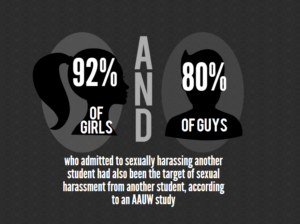
[Editor’s note: Our archives contain several years of excellent articles, most of which remain relevant and important to today’s young people and the adults who work with them. This one is a “Director’s Choice” that we are reposting this week.]
As parents, we all struggle sometimes with how to explain things we hear to our kids. We want our kids to understand what they are hearing and seeing. More importantly, sometimes we need them to understand so that we can protect them. As a parent of four, I am no different. Of late, however, I have been kept awake at night not only by things that I cannot explain but by things from which I cannot protect my children.
Let me explain, my children are now adults: 26, 29, 30, and 33 years old. Three of them are African-American; one is White. Like any parents of kids of color, I have been kept awake at night, this time by the recent death of Tyre Nichols. Each time there is an incident like this, I am reminded that some of my kids are one misinterpretation away from becoming another name and another statistic in the news. This thought terrifies me and every other parent of a BIPOC child in this country (Black, Indigenous, and people of color).
And it’s not just BIPOC children who are at risk. We have seen a statistical rise of violence against LGBTQI+ children, as well, and an increase in antisemitism. All in all, “freedom” to hate and hurt because someone may be different is on the rise and affects all parents and children, because if one group is not safe, no one is truly safe.
So how can we all help improve this situation for everyone? There are things we, as adults and bystanders (or upstanders), can actually do to make a difference for all of our children now and in the future:
—Acknowledge difference. Difference is neither good nor bad; it’s diversity; it is what makes the world and all of its wonders. Fill your house with books, art, and examples of a diverse world. Expose your children to all kinds of people doing wonderful things. Pretending we are “all the same” in the hopes it will raise “colorblind” children actually can do more harm than good and diminishes other people’s experiences. This is an opportunity to learn to take the perspective of others.
—Speak openly about what you see (and use age-appropriate language). Parents of children of color often need to have “the talk” (a series of what to do and not do to stay safe as a person of color specifically) from the time their kids are very young. White families can build empathy and understanding by having hard discussions about situations which come up at school, locally, or even in the news. For example, at school one student uses a racial slur toward another. Regardless of the school’s response, the incident provides an opportunity to discuss the power and potential harm words can cause and some of the ways things like race or family origin have systemically been used to hurt groups of people. Kids know when words have made them feel bad—help them understand and connect those experiences to things they overhear or see happening to others.
—Model equity. Equity and equality are different: Equity means everyone is provided what they need to succeed and acknowledges that we don’t all start from the same place; equality means everyone is treated the same. Your actions often speak louder than your words. Do you give everyone in your home the same amount of everything at every meal? That would be fair—but not necessarily equitable because the same amount of everything may not be what each individual needs. Use simple examples and build from those to complex real-world examples, like the practice of financial aid that allows some families to attend college but that doesn’t provide access to college for everyone.
—Do something. Challenge racism, bigotry, and stereotypes when you encounter them. Silence and inaction are tantamount to condoning them. If you or your child notices something going on in school, speak up—say something to the teacher or the principal. Be an ally in action not just word.
—Notice moments and acts of kindness, and acknowledge those, too—in your kids and in others.
–As your kids become tweens and teens, encourage activism. Kids develop a keen interest in social justice and their world at this age, and this is an ideal time to help them help others.
—Seize teachable moments—when you are out with them, when your kids talk about something that happened at school, when you are sitting with them watching a commercial or a situation on TV. These conversations are rarely easy, and sometimes you won’t have the answers. What will help?
*Be sure you have resources for yourself! Who can you talk to who has some expertise in these matters (and I don’t mean asking a BIPOC person and expecting them to be an expert simply because they are BIPOC). Find resources, experts, online classes, books, information on unconscious bias training, anti-racism, or anti-bias work that you can use to better inform yourself and help you talk through tough moments, because they will happen.
*Understand where you are on your own journey—try to understand your own biases. These conversations, depending on how raw they become, can be triggering if you have not done your own work in advance.
*Ask you kids what they have seen or heard, and ask them what they think. And listen to them, hear them.
*Don’t assume the best or the worst: Ask clarifying questions, and ask why they think a certain way.
*Offer factual and historical perspective if you can.
*If you don’t know what to do or how to guide them, admit it. Then go on to discuss how you will find the answers together.
*If you want to give your opinion, give the spectrum of opinions first (“Some people believe this, some believe that, in this home we believe…”), and explain WHY you believe what you believe. If your child is a teenager, remember they may listen, but they will always form their own opinion and will not accept one being forced on them as their own.
We may not have all the answers, but what we do have is the time and willingness to help our kids grow and navigate these situations so that they become adults who value, understand, and prioritize everything which makes each of us special, regardless of labels. Perhaps if we take the time to explore these issues with our kids during the day, we can all begin to sleep better at night.
Nationally-recognized visionary in the areas of educational system improvement and innovation, educational consultant Marja Brandon has been a teacher, head of school, and founder of Seattle Girls School. She is currently the head of school at Childpeace Montessori School in Portland, OR. She volunteers to offer advice and writes articles for TeensParentsTeachers.
Like most of the pictures on TeensParentsTeachers, the picture posted with this article is courtesy of a free download from Pixabay.com.



